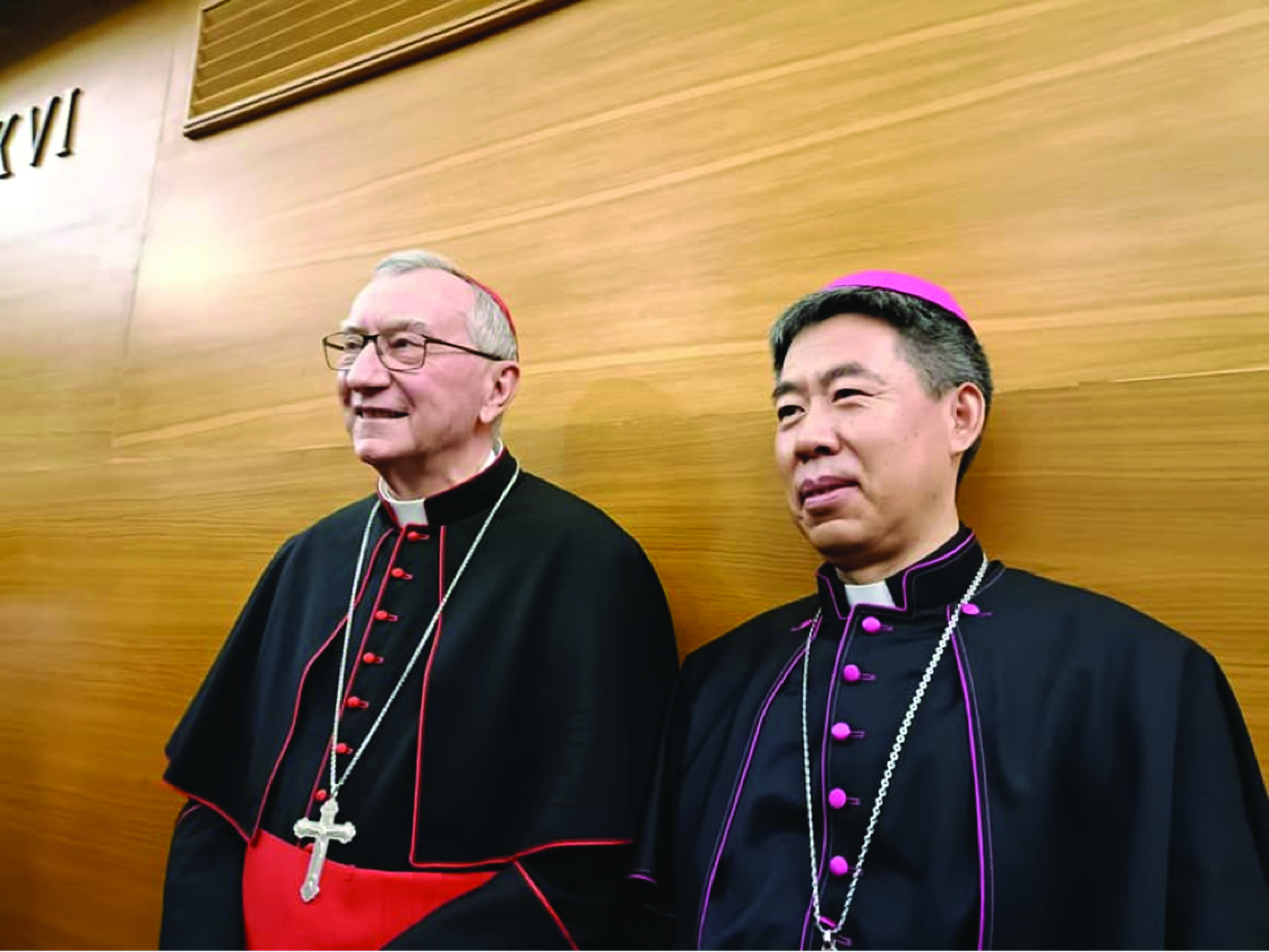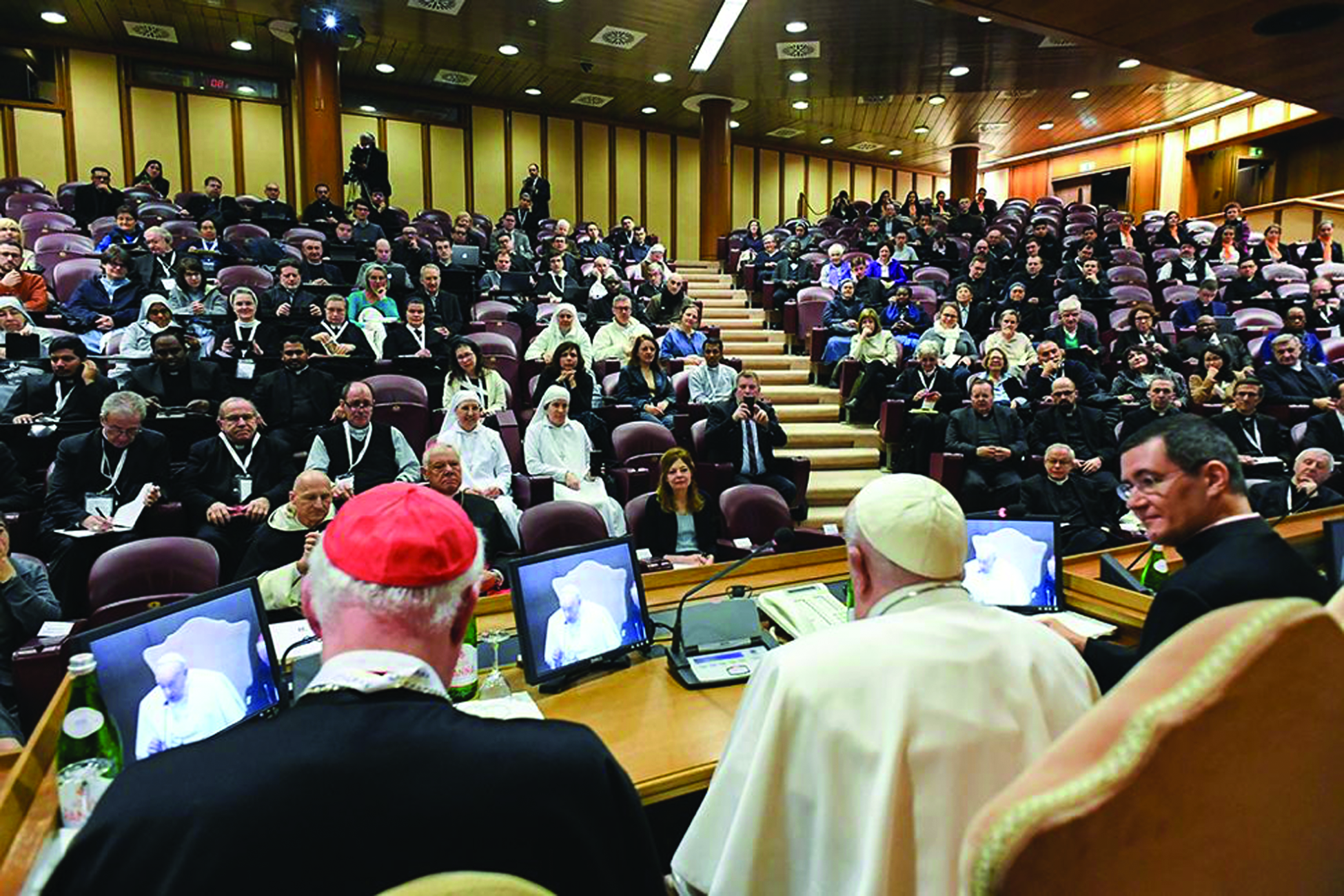
A meeting between Pope Francis and a young man at St Peter’s square.
In his message for Lent 2015, Pope Francis urges all Catholics to “make your hearts firm” in “the sea of the world’s indifference”.
Christians are called to overcome apathy, discouragement and pretentions of self-sufficiency by letting God enter into their hearts, making them joyful, merciful and strong, Pope Francis said.
Through prayer, charity and humility before God, people receive a heart “which is firm and merciful, attentive and generous, a heart which is not closed, indifferent or prey to the globalization of indifference,” the Pope said in his message for Lent, which begins February 18 for Latin-rite Catholics.
In fact, the individualistic “selfish attitude of indifference has taken on global proportions,” turning it into “one of the most urgent challenges” that “we, as Christians, need to confront,” the Pope wrote.
Released by the Vatican January 27, the text of the Pope’s Lenten message focused on the need for inner conversion and renewal, with the title, “Make your hearts firm,” which is from the Letter of James.
A firm heart is strong and steadfast against temptation and evil, but it is also open to God, capable of being “pierced by the Spirit,” touched by his love and moved to share it with others, he said.
“When the people of God are converted to his love, they find answers to the questions that history continually raises,” the Pope said, including the pressing problem today of “the globalization of indifference.”
“Indifference to our neighbor and to God also represents a real temptation for us Christians,” he said, which means the Church, parish communities and lay people need regular reflection and “interior renewal, lest we become indifferent and withdraw into ourselves.”
God’s love breaks down the walls of “that fatal withdrawal into ourselves, which is indifference,” he said.
By receiving Jesus, by listening to his word, receiving the sacraments and engaging in prayer, “we become what we receive: the Body of Christ,” which is a living, united communion of members that share their gifts and leave “no room for indifference.”
Parishes and Catholic organizations, too, must share and care for the weakest, poorest and most marginalized, refusing to “take refuge in a universal love that would embrace the whole world, while failing to see the Lazarus sitting before our closed doors.”
May Catholic communities “become islands of mercy in the midst of a sea of indifference,” the Pope said.
The Church and its organizations must go out to ends of the earth by praying with the Church in heaven and engaging with the wider world, he said.
Even the faithful who are now in heaven have not turned their backs “on the sufferings of the world,” rejoicing “in splendid isolation”; rather, they want Christ’s “victory of love” to penetrate the whole world, which is why they accompany those on earth as they continue God’s work, he said.
God calls every man and woman to him, he said. That is why “in each of our neighbors, then, we must see a brother or sister for whom Christ died and rose again” and recognize that “all that our brothers and sisters possess is a gift for the Church and all of humanity.”
The best way for Catholics not to be overwhelmed by so much bad news in the world and to avoid the “spiral of distress and powerlessness,” he said, is to become united in prayer, to concretely help others and to see suffering as an occasion for one’s own conversion.
Witnessing so much need “reminds me of the uncertainty of my own life and my dependence on God and my brothers and sisters,” he said.
Only by humbly accepting one’s limitations and recognizing God’s infinite abundance can people “resist the diabolical temptation of thinking that by our own efforts we can save the world and ourselves.”
Msgr. Giampietro Dal Toso, secretary of the Pontifical Council Cor Unum, the office which handles the Pope’s charitable giving, presented the Lenten message at a Vatican news conference on January 27.
He said indifference — where everything becomes the same or equally valid — results in an eradication of values, meaning and any distinction between good and evil, true and false.
“If everything is the same, if nothing is different and therefore is more or less valid, what can one invest one’s life in?” he asked.
The Church upholds the truth, its standards and principles, and recognizes difference “between oneself and the other, between one lifestyle and another, between oneself and God,” the monsignor said.
“The Church does not denounce certain situations simply to censure them but she wishes to offer paths toward healing,” he said.
Everyone is called to conversion not because this “new heart” rooted in the Gospel is the key to a better society, but because the real purpose of conversion is to know Christ and become more like him, he said.
People’s faith, however, must then move outward so as not to become “functional,” caring only about oneself and one’s personal well-being, Msgr. Dal Toso said.
The Church is a living body whose members “take care of each other; they even live thanks to one another. The experience of living in the Church is already a break away from individualism, from indifference, and from the withdrawal into oneself that leads to death,” he said.






Facebook Comments